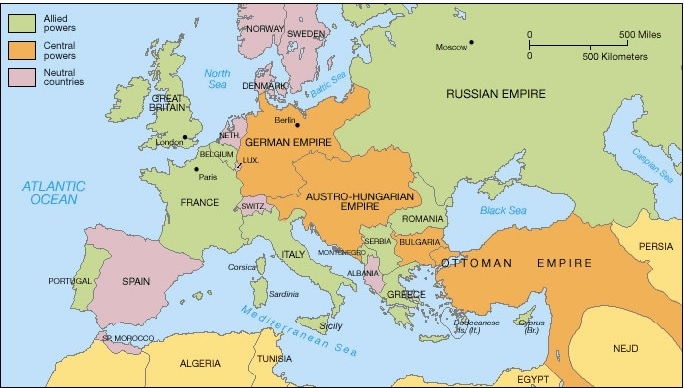Writing to Learn While Learning to Write
A visitor to the Waynflete campus might well wonder what is going on upon entering the Emery Building in mid-March and passing a group of students huddled in an alcove whispering with conspiratorial urgency. The mystery would deepen as the visitor turns the corner and trips over another student who has crawled into position to spy on the apparent conspirators. Stepping into the classroom of history teacher and department chair Alice Brock, the visitor might find a small group of students feverishly wordsmithing a document in response to a hastily scrawled message on the whiteboard that reads: “Dear France, We are truly sorry we took Alsace-Lorraine from you and we promise to be nice to you and we hope you will forgive us. Your friend, Germany.”
So what is going on? “Learning to write,” according to Alice, among other lessons. The students are sophomores taking Modern European History engaged in a week long role play exercise. Alice has divided her class into groups representing European countries and assigned them the task of turning back the clock to 1914 to see if they can do better than their diplomatic predecessors by preventing the outbreak of war. The Great War unit, in addition to the role play, includes extensive document analysis and classroom discussion, culminates in a term paper in which students are asked to develop their own research based historical analysis of the primary causes of the war.
The role play is intended to deepen and make tangible the more academic and abstract study of the war. According to Alice, “Role plays are amazingly effective in helping students to “get it” and appreciate an issue on a visceral level. Without the role play, this topic – why the Great War happened – would remain highly abstract. With it, students are much more invested in writing their term papers. They understand why this topic matters and can delve into it much more deeply than they would otherwise.”
In short, Alice’s students are deeply immersed in the writing process. The Great War provides an excellent opportunity to engage students in active historical study, which in turn stimulates focused thought and in-depth writing because the causes of the war are complex, elusive, and still debated. Thus, according to Alice, this study, especially the role play, “is empowering. It drives home the fact that individual human beings can make a big difference and change the course of history. In this role play, the students are rewriting history realistically and learning (or at least beginning to learn) that the concepts of “inevitability” and “forces beyond human control” need to be challenged. In other words, they learn, I hope, that people make history, not the other way around.”
“Rewriting history” in this way illustrates a core methodology employed throughout the School: writing to learn while learning to write. Ask any Waynflete graduate if she or he felt prepared for college. Far more often than not, the response will be something like, “Oh yes, especially with writing.” While Upper School English and history teachers might like to take full credit for this persistent response, in actuality, credit is due to the entire faculty because Waynflete teachers across disciplines and divisions understand the powerful interplay between writing and thinking and design their lessons accordingly.
English and foreign language teachers routinely use writing as a tool to hone skills of literary analysis by using literary analysis as the material for writing assignments. And science teachers are doing the same when they assign and scrutinize lab reports. A well written lab report is the product of sound scientific thought, while a poorly written one is likely reflects a vague or incomplete understanding of the science. In such disparate subjects as art and math, students are asked to reflect on what and how they have learned, which again demands precision of word and thought. Such reflective writing brings students’ understanding of a concept or process or creation to a deeper level and allows teachers to better assess and guide their thinking.
Given the unique mix of serious scholarship and playfulness that permeates the School, every visitor to the Waynflete campus is potentially in for a surprise. But some things are certain. While the methods employed by Alice and the rest of the faculty do not always require students to go to such extremes as crawling through the hallways to spy on their peers, they do routinely inspire passions and cultivate capacities for learning and writing and so prepare our students well for any future they might encounter.




